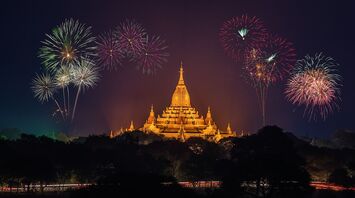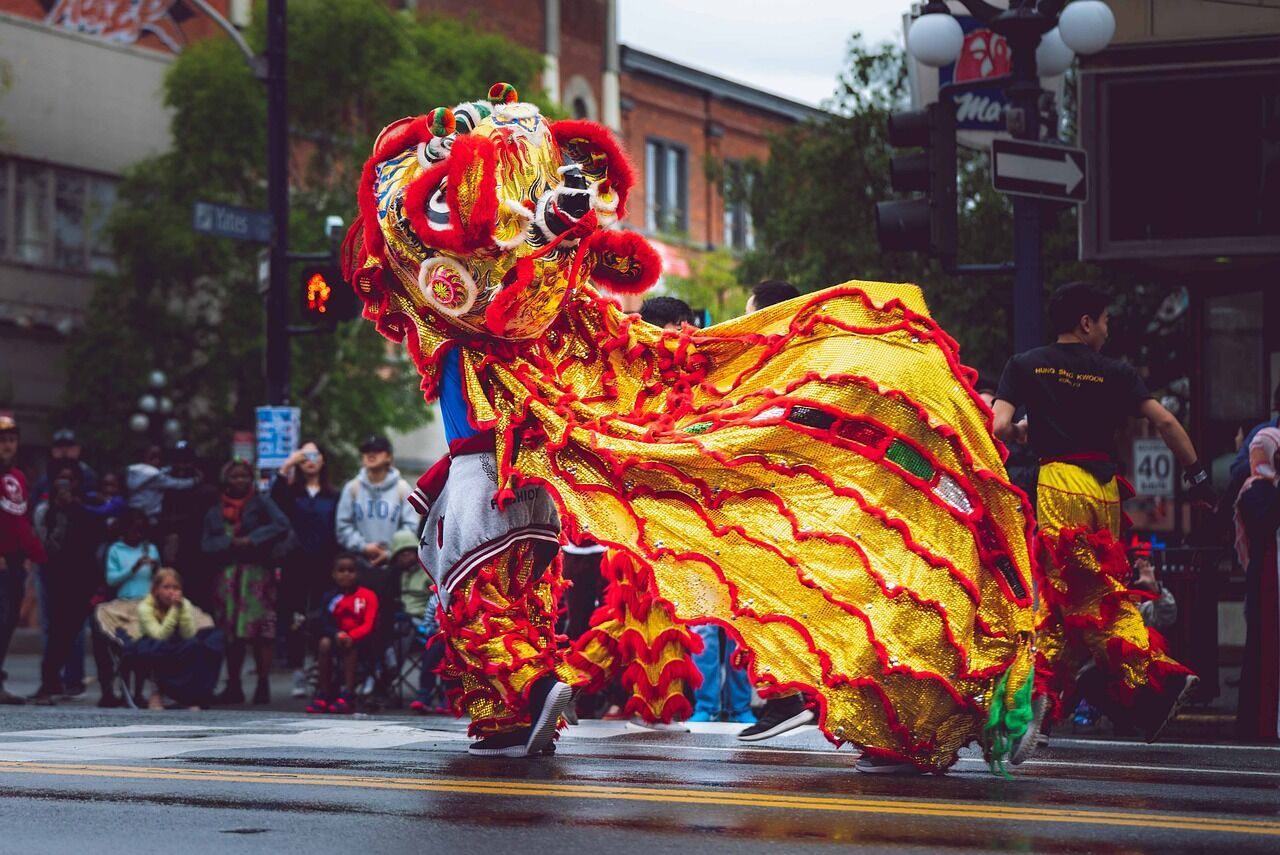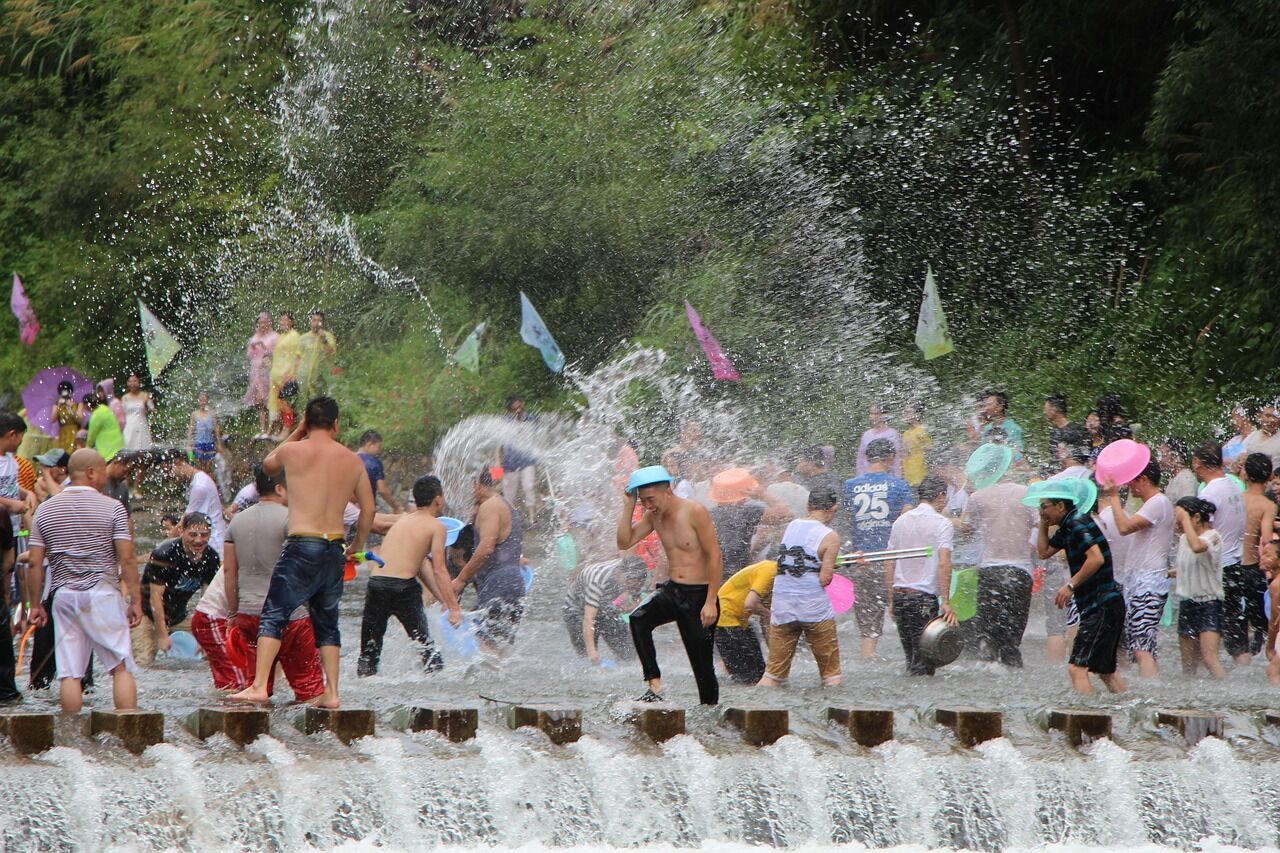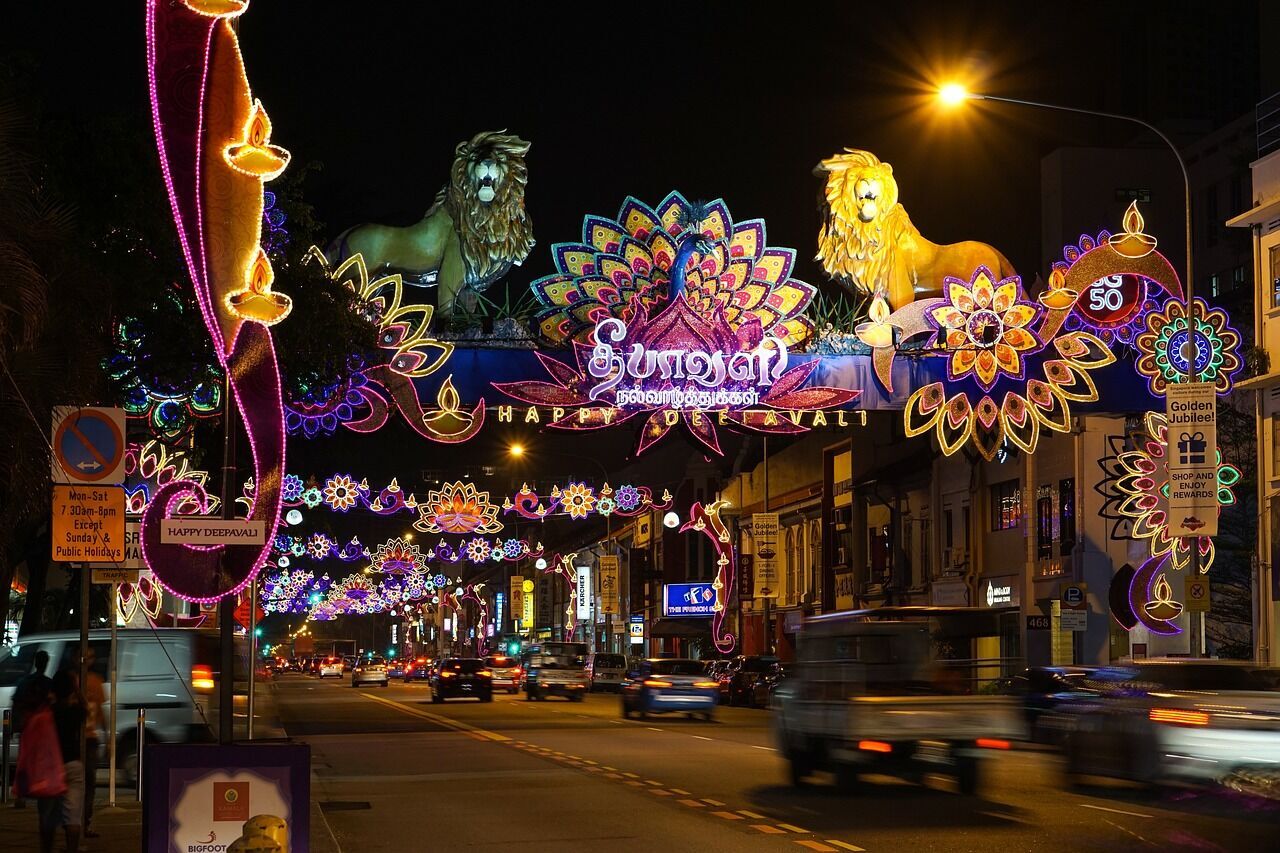Calendar of New Year celebrations around the world

While many people celebrate the New Year in early January, many other cultures and countries celebrate the start of the new year on different dates
Celebrating the New Year is a long-standing tradition around the world: food, fireworks, and time with friends and family. However, in the end, it happens in different calendars, religions, and cultures.
While the Gregorian calendar (introduced through Christianity) is mostly distorted in the Western world to take center stage, the lunar and solar calendars are also recognized in some celebrations, marking a time to take stock of the year that has passed and welcome the coming year. Nationalgeographic.com has published different ways how and when the New Year is celebrated around the world.
Gregorian New Year
January 1, 2022
New Year's Day marks the first day of the Gregorian calendar, which we are already very familiar with around the world. While March 25th (named after the Roman god of war) was traditionally the day to celebrate New Year's Eve, in Roman times this day moved to January. This New Year's Eve originated from Christianity and has largely trickled down around the world, adopting the Gregorian calendar in many places. In recent times, New Year's Eve has taken a bigger role in the spotlight with fireworks and parties with friends and family to ring in the New Year.

Lunar New Year
February 1, 2022
The exact day of the Lunar New Year changes every year - the months of the year are marked by lunar cycles, so the New Year is celebrated on the day of the first new month on the lunar calendar. This holiday is most associated with the Chinese New Year in the West, but it is widely celebrated in East Asia, where countries and cultures have their own traditions. A common ritual is to use this time to see friends and family, and many people travel to do so during this period. Fireworks are set off to ward off evil spirits, houses are cleaned up to celebrate the beginning of spring and the upcoming New Year. A dish of sweets (the so-called Unity Tray) is placed for visitors to the house, where all the sweets are carefully selected to symbolize health, prosperity and happiness. In many Chinatowns around the world, streets are closed for parades and celebrations during this holiday.
Nowruz
March 20, 2022.
Beginning on the vernal equinox to celebrate the rebirth of nature, Nowruz (meaning "new day" in Farsi) marks the first month of the Iranian solar calendar, falling around March 21st each year in the Gregorian calendar. Also known as the Iranian or Persian New Year, it is widely celebrated in Central Asian countries. People recite poetry, jump over bonfires, and perform folk music to celebrate the overcoming of sadness and darkness, and clean their homes to pave the way for the future. It is a time for family gatherings, feasts, street festivals, and sports.

Songkran
April 13-15, 2022
Songkran works with the solar calendar, marking the sun's movement from Pisces to Aries in the zodiac. Songkran is celebrated throughout Thailand, and customs differ depending on the region of the country. It is one of the most important events in the Buddhist calendar, centered on water. Songkran is considered spiritually cleansing and washes away the bad luck of the past year. During the New Year, young people will visit the older generation of their family to pour water on their hands and feet as a sign of respect. But the more commercial side of the festival involves people throwing water on each other: water guns are often used in the streets.
Muharram
July 30-August 27, 2022
Muharram marks the first month of the Islamic calendar, the beginning of the year is celebrated on the 10th day of the month (Ashura Day). The traditions and rituals differ for the two main sects of Islam, Shia and Sunni, although the main focus for most is remembrance, self-reflection, and expressions of gratitude. Many people around the world celebrate this period by visiting family, prayer sessions in mosques, and fasting on Ashura Day. This New Year is more of a period of reflection and mourning - Muharram means "forbidden".
Enkutatash
September 11, 2022.
According to the Ethiopian calendar, Enkutatash means "celebration" - September 11 according to the Gregorian calendar. Meaning "gift of precious stones," the holiday is believed to have originated about 3000 years ago, when there was a story about the Queen of Sheba returning home after a journey. The celebration of Enkutatash lasts about a week and is mostly centered on the family. People return home to celebrate the New Year together with food and beer. This usually marks the end of the rainy season in Ethiopia, when yellow daisies begin to grow in the countryside.

Diwali
October 24, 2022
The Hindu lunar festival of Diwali is a five-day festival of lights that begins anew. The dates change every year depending on the Hindu calendar: it usually falls between mid-October and mid-November, on the amavasya (new moon), the darkest night in the Hindu calendar. There are different customs depending on where it is celebrated, when different gods are prayed to, but the theme of light continues everywhere. People clean and decorate their homes to welcome Lakshmi, the goddess of wealth, with entrances made of colored sand, rice paste, and flowers. The day before is a time to visit neighbors and family, and Diwali is celebrated with a Lakshmi prayer, a meal and fireworks.
Rosh Hashanah
October 25-27, 2022
In the Jewish lunar month of Tishrei, Rosh Hashanah is celebrated on the first and second days as the Jewish New Year. Meaning "the head of the year," it is a period of reflection to atone for any wrongs throughout the year and to forgive others. The shofar (ram's horn trumpet) is blown before and during Rosh Hashanah, as well as at the end of the period, serving as a call to soul-searching and growth for the coming year. Traditions and customs vary from family to family, but the symbolic food for this time is one of the staples - for example, pomegranate seeds are eaten throughout the year. Most of Rosh Hashanah is spent in a synagogue or at home.



















